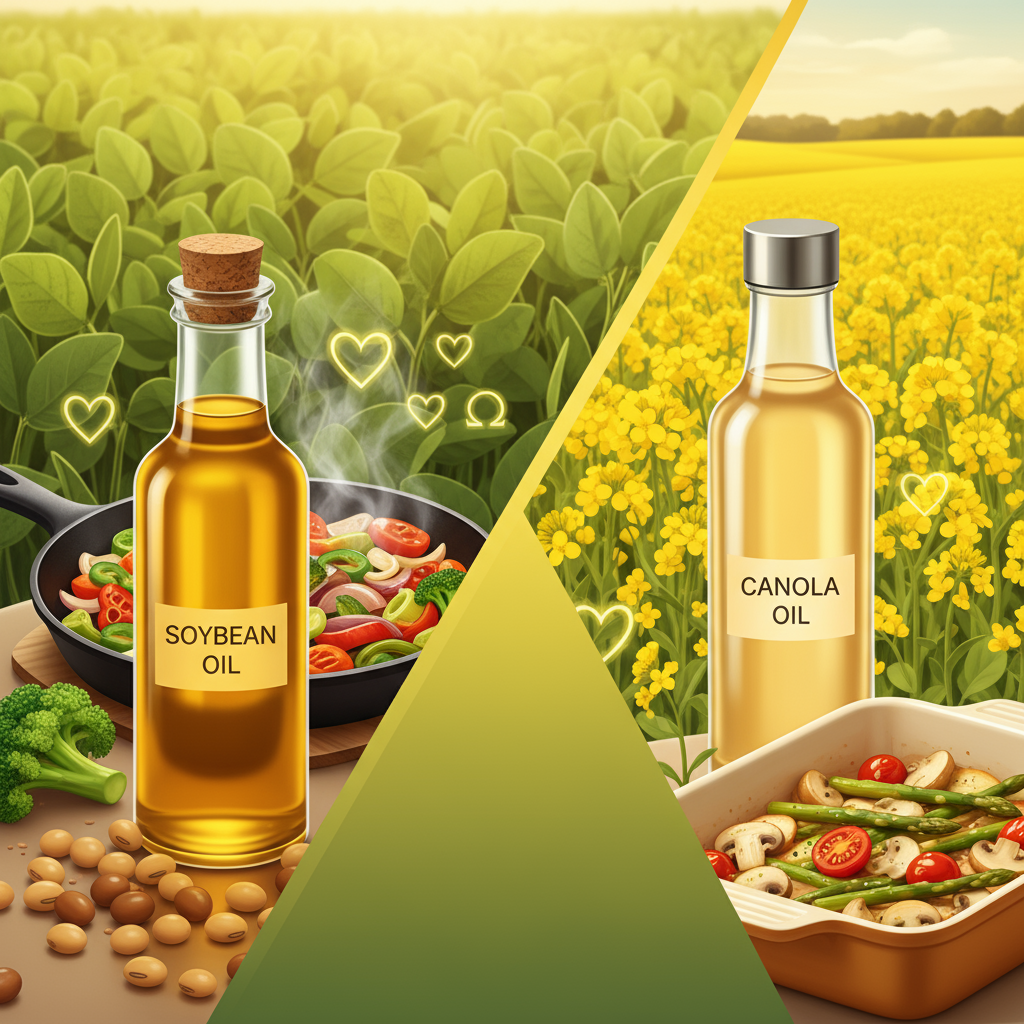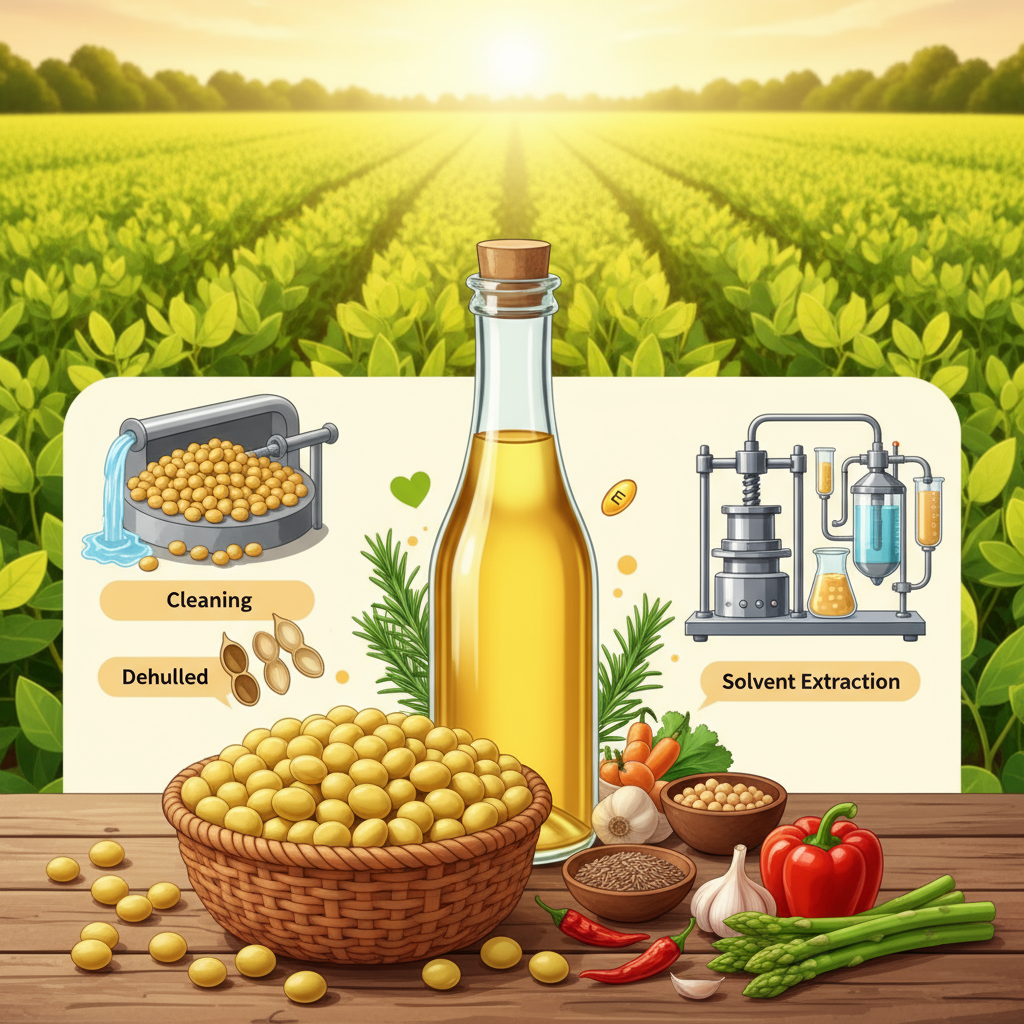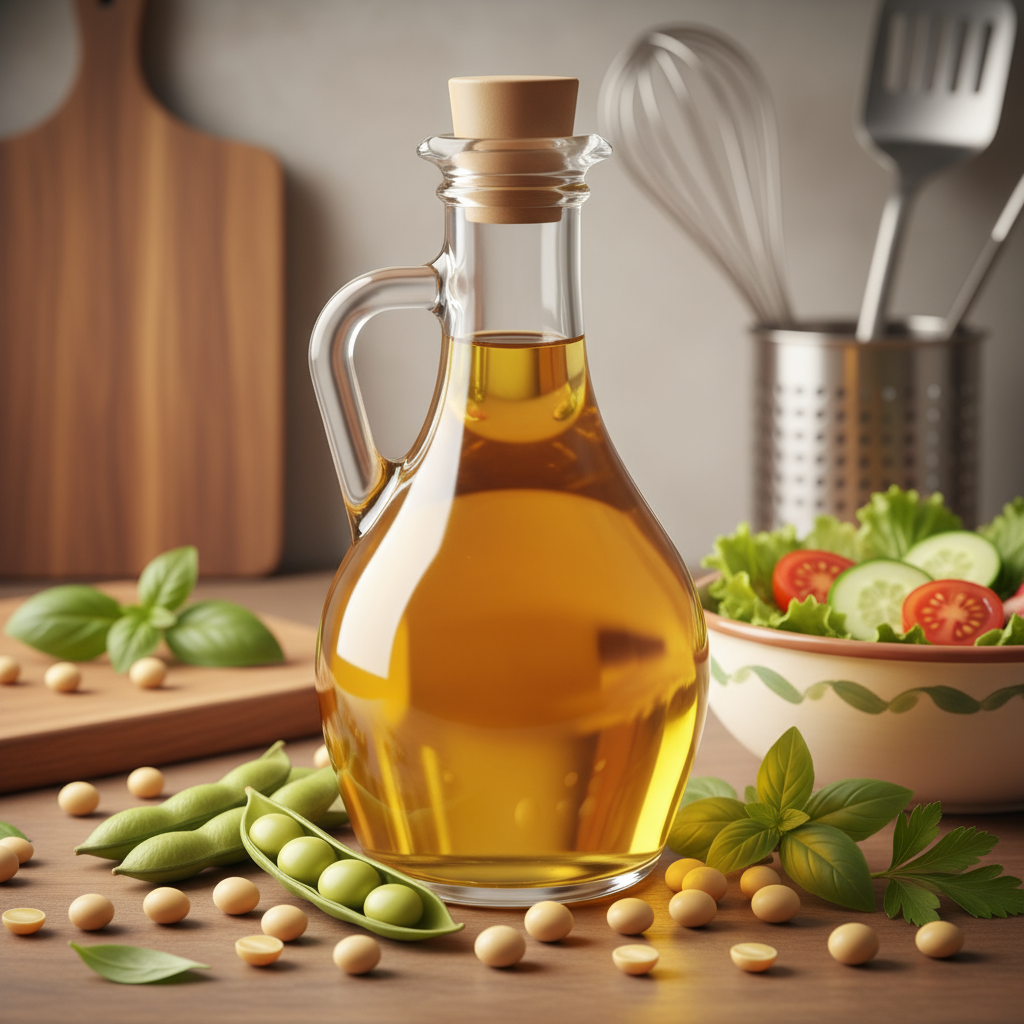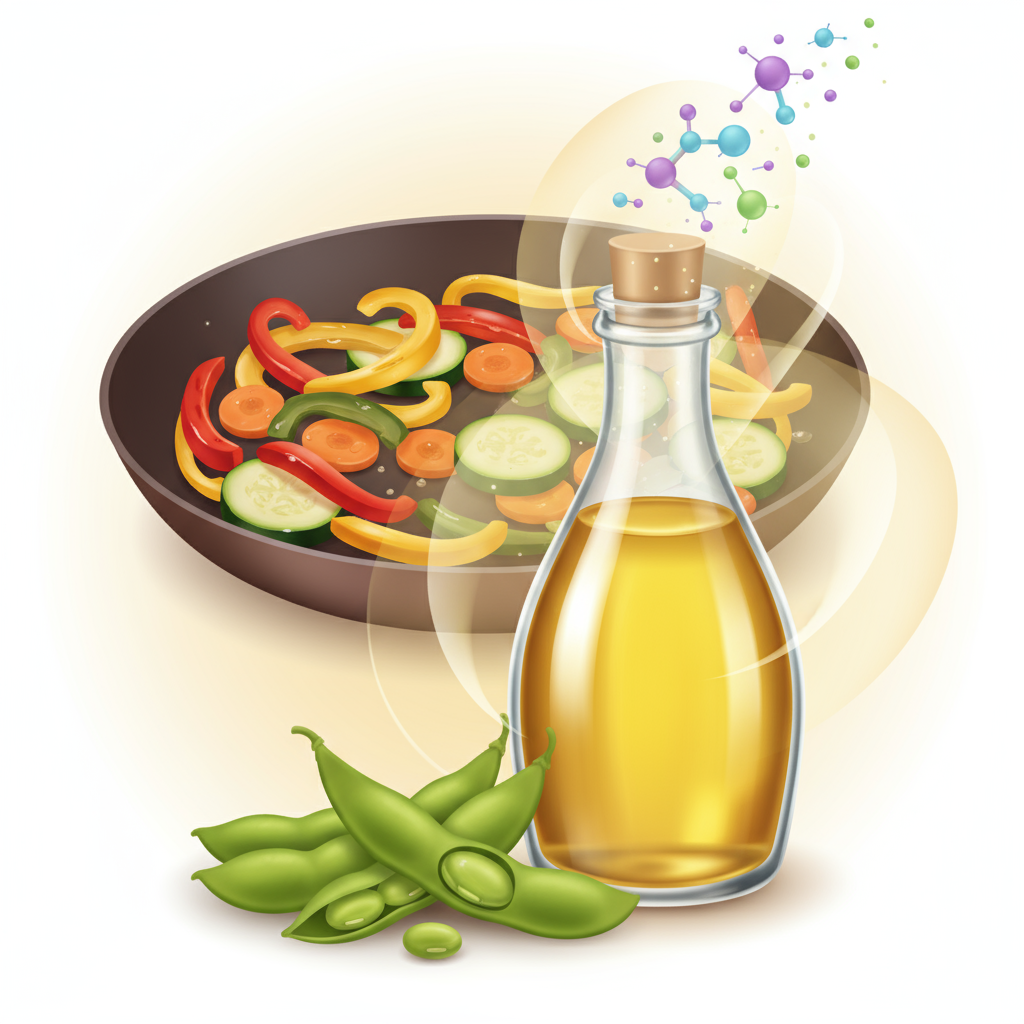
Soybean Oil vs. Canola Oil: A Comprehensive Guide
TL;DR
Soybean oil and canola oil are popular cooking oils, each with distinct nutritional profiles and culinary uses. Soybean oil is higher in saturated and polyunsaturated fats, while canola oil boasts a greater amount of monounsaturated fats. Both oils have similar calorie content and provide essential fatty acids, but their health impacts can vary. This article explores the differences, health benefits, and culinary applications of soybean and canola oil to help you make informed cooking oil choices.
Cooking oils are essential in our kitchens, but with so many options available, choosing the right one can be overwhelming. Two of the most commonly used oils are soybean oil and canola oil. While both are derived from plants and serve similar culinary purposes, they differ significantly in their nutritional content and health benefits. This article will delve into the key differences between soybean oil and canola oil, helping you understand which might be the better choice for your cooking needs.
Both soybean oil and canola oil are composed entirely of fats, providing approximately 884 calories per 100g serving. However, their fat compositions are quite different:
Soybean Oil:
Canola Oil:
This difference means that soybean oil has more saturated and polyunsaturated fats, while canola oil is favored for its higher monounsaturated fat content, which is often considered healthier (FoodStruct).
Both oils are good sources of essential fatty acids, including omega-3 and omega-6. These fatty acids are crucial for maintaining heart health and overall well-being (Harvard Health). However, the balance of these fatty acids varies between the two oils, which can influence health outcomes.
The type of fats in cooking oils can significantly impact heart health. Monounsaturated fats, such as those found in canola oil, are known to lower bad cholesterol levels (LDL) and raise good cholesterol levels (HDL). Conversely, while polyunsaturated fats in soybean oil can also be beneficial, the higher saturated fat content may not be as heart-friendly (Chromatography Today).
When it comes to cooking, both oils have their merits:
Soybean Oil: With a high smoke point of approximately 256°C, soybean oil is excellent for deep-frying and high-heat cooking (Health Hub). Its neutral flavor makes it versatile for various dishes.
Canola Oil: Also suitable for general cooking, canola oil has a slightly lower smoke point of around 204°C, making it less ideal for high-heat applications like deep-frying but perfect for sautéing and baking (Health Hub).
When deciding between soybean oil and canola oil, consider your cooking methods and health needs:
Both soybean oil and canola oil have their unique benefits and drawbacks. While soybean oil is higher in saturated and polyunsaturated fats, canola oil offers a healthier profile with more monounsaturated fats. Your choice should depend on your culinary needs and health goals. By understanding the differences between these two oils, you can make informed decisions that align with your dietary preferences and cooking styles.
Soybean oil is higher in saturated and polyunsaturated fats, while canola oil contains more monounsaturated fats, known for being healthier. Both oils have similar calorie content but differ in their fat compositions and health benefits.
Canola oil is generally considered better for heart health due to its higher levels of monounsaturated fats, which can help lower bad cholesterol (LDL) and raise good cholesterol (HDL). Soybean oil has a higher saturated fat content, which may not be as heart-friendly.
Yes, soybean oil has a high smoke point of about 256°C, making it suitable for deep-frying and other high-heat cooking methods. In contrast, canola oil has a lower smoke point of around 204°C, making it better for sautéing and baking.
Your choice should depend on your cooking methods and health goals. If you want to reduce saturated fat intake and increase healthier fats, choose canola oil. For versatile cooking, especially at high temperatures, soybean oil is a great option.

How is Soybean Oil Processed? A Comprehensive Guide
TL;DR Soybean oil, a versatile and widely used cooking oil, is processed through a three-step method: cleaning, dehulling, and oil extraction. The extraction can be done via mechanical pressing or solvent extraction, often using h...

What is Soybean Oil? A Comprehensive Guide
TL;DR Soybean oil is a versatile vegetable oil extracted from soybeans, widely used in cooking, baking, and food processing. It is rich in polyunsaturated fats, particularly omega-6 fatty acids, and has a high smoke point, making ...

Does Soybean Oil Contain Phytoestrogens?
TL;DR Soybean oil, a common cooking oil, is derived from soybeans but contains minimal phytoestrogens. While soybeans themselves are rich in isoflavones—plant compounds that can mimic estrogen—most of these compounds do not transf...

How Much Does Soybean Oil Weigh Per Gallon?
TL;DR A gallon of soybean oil weighs approximately 7.6 pounds. This weight can vary slightly depending on the oil's temperature and density, but 7.6 pounds is a widely accepted average. Understanding the weight of soybean oil is e...
Ready to source an ingredient?
Whether you’re struggling to find the perfect ingredient, racing against the clock, or simply don’t have the bandwidth to manage sourcing — we’ve got your back.
Get a Free Sourcing AuditSavings is BIG but the relationship value is MASSIVE! Glad we met when we did. Looking forward to building this partnership with you and David.
Yohan, here to say you’re one of my favorite suppliers. Aside from your high quality ingredients, you’re so great to work with. Thanks for all the help you’ve given us this year.
Working with Global Savors and Yohan has been very smooth when sourcing ingredients. They offer a great selection and and cost savings! Yohan has been awesome to work with and we look forward to continuing business together.






Global Savors is your trusted partner for seamless ingredient sourcing, offering end-to-end solutions that streamline procurement, simplify logistics, and elevate your supply chain efficiency.
View More News
© 2026 Copyrights by Global Savors. All Rights Reserved

